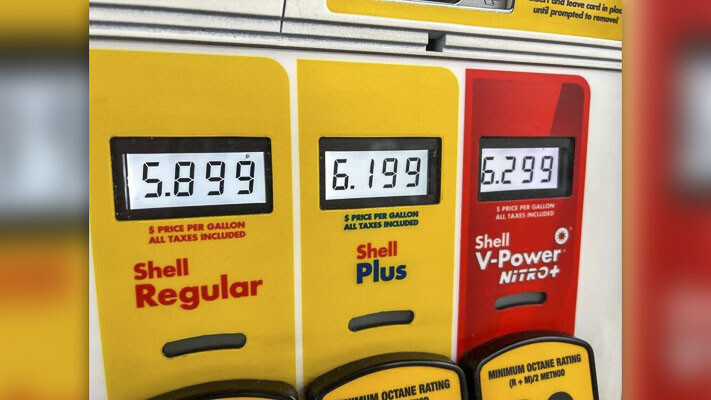
As of Jan. 1 of this year, Washingtonians are paying for a new cap-and-trade system
Timothy Schumann
The Center Square Washington
The average price of a gallon of regular unleaded was $4.57 statewide on Monday, up from $4.50 a week before, according to AAA data. Washingtonians are paying for three months of fuel price increases this calendar year following the implementation of a carbon tax earlier this year.
This 7 cents per gallon increase moved opposite the national average, which fell from $3.67 per gallon to $3.66 per gallon, a 1 cent per gallon decrease over the same time period.
“The recent surge in oil costs took a break this week, with the price of oil tumbling back into the upper $70s per barrel,” AAA spokesperson Andrew Gross said in a statement. “If this oil price trend continues, drivers may see falling gas prices.”
While that oil price may be reflected in the slight one-cent per gallon decrease nationally, residents of the Evergreen State are paying more than most. Washington’s pump prices currently stand at the fourth most expensive nationally. Only California, Hawaii, and Arizona are pricier.
Washington’s $4.57 per gallon places it 91 cents per gallon higher than the national average of $3.66 per gallon. It is also $1.44 per gallon more than what Mississippi residents – the nation’s least expensive fuel cost of $3.13 per gallon – pay.
Washington intra-state variance remains high at $1.33 per gallon, down 2 cents per gallon from last week. San Juan and Asotin counties had the most and least expensive gas prices in the state, at $5.16 and $3.83 per gallon.
Residents to the west of the Cascade range continue to pay higher premiums at the pump.
As of Jan. 1 of this year, Washingtonians are paying for a new cap-and-trade system.
“The first auction of CO2 allowances [averaged] $48.50 per metric ton of CO2. This equates to about 39 cents per gallon of gasoline and 47 cents per gallon of diesel,” announced a report by the Washington Policy Center based on recently released Washington State Department of Ecology data.
This report was first published by The Center Square Washington.
Also read:
- Can $10 tolls be coming to the Interstate Bridge?Rep. John Ley examines a proposed Washington House bill that would double borrowing for the Interstate Bridge Replacement and potentially lead to high tolls affecting Southwest Washington drivers.
- Overnight full closure of I-5 in north Clark County for utility work, April 13Both directions of I-5 in north Clark County will be closed early Sunday morning, April 13, for utility work involving overhead power line relocation.
- Opinion: The stage is set for a battle royaleRep. John Ley outlines key legislative battles in Olympia, raising concerns about tax hikes, tolling, and spending priorities in Washington state.
- Inflation worries drive WA lawmakers to jack up I-5 bridge borrowing plan by $900MLawmakers in Washington have added $900 million to their borrowing plan for the I-5 bridge replacement, drawing opposition from Rep. John Ley.
- Expect delays on eastbound SR 14 West Camas Slough Bridge for annual inspection, SaturdayAnnual inspection will close the eastbound lane of SR 14 in Camas.









